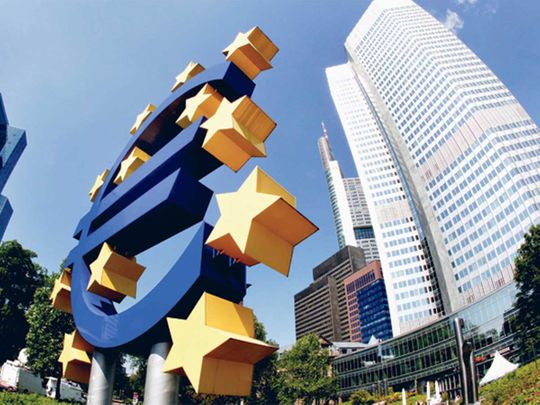
War, a winter of energy rationing, a coming recession that could outlast any American one. Oh, and a newly hawkish ECB. How Europe will surmount its mountain of troubles is anyone’s guess - and investors aren’t sticking around to find out.
Money managers yanked $3.4 billion from European stock funds in the week through September 7, taking total outflows in the past six months to $83 billion, according to Deutsche Bank AG citing EPFR Global data. Among those fleeing are BlackRock Inc. and the region’s largest asset manager Amundi SA. Analysts at Bank of America Corp. and JPMorgan Chase & Co slashed year-end forecasts for the Stoxx 600 and Euro Stoxx 50 respectively.
Europe’s woes have grown particularly acute in recent months as the region stares down the threat of a recession just as its central bank embarks on an aggressive campaign to tame inflation. Russia’s cutting of gas supplies to the West is exacerbating an energy crisis that could lead to rationing this winter.
Already, it’s forcing strapped governments, some that are sitting on debt to GDP ratios of around 150 per cent, to dig deeper into the coffers for hundreds of billions to pay for proposed price caps. All the while, the common currency plumbs lows versus the dollar not seen in two decades.
“We’ve expected a recession in Europe for months given the energy crunch, but we don’t think equities have fully priced this in,” said Wei Li, BlackRock’s London-based global chief investment strategist.
Indeed, Europe’s main stock index is down just 14 per cent in 2022, outperforming the US benchmark and the MSCI World Index, as it reaps the benefits of a weak currency that makes exports more competitive and a resilient second-quarter earnings season.
Yet as the continent faces what Finland described as an “energy-industry Lehman Brothers” moment, warnings that a complete shutoff of Russian gas will plunge the region into recession are growing louder. Forecasts among economists for a recession in the euro zone over the next year have climbed each month in 2022, with odds reaching 60 per cent in August, according to 11 respondents.
Citigroup Inc. strategists expect a slew of downgrades in the next few months, while peers at Morgan Stanley warn profit margins face the biggest decline in more than a decade.
All told, the situation for financial assets in Europe looks grimmer than in other parts of the world. The outflows from European-focused ETFs are the biggest in at least 15 years, while regions like the US have continued to attract inflows, according to data compiled by Bloomberg. Money managers have added $166 billion to global stock funds this year, according to Deutsche Bank.












